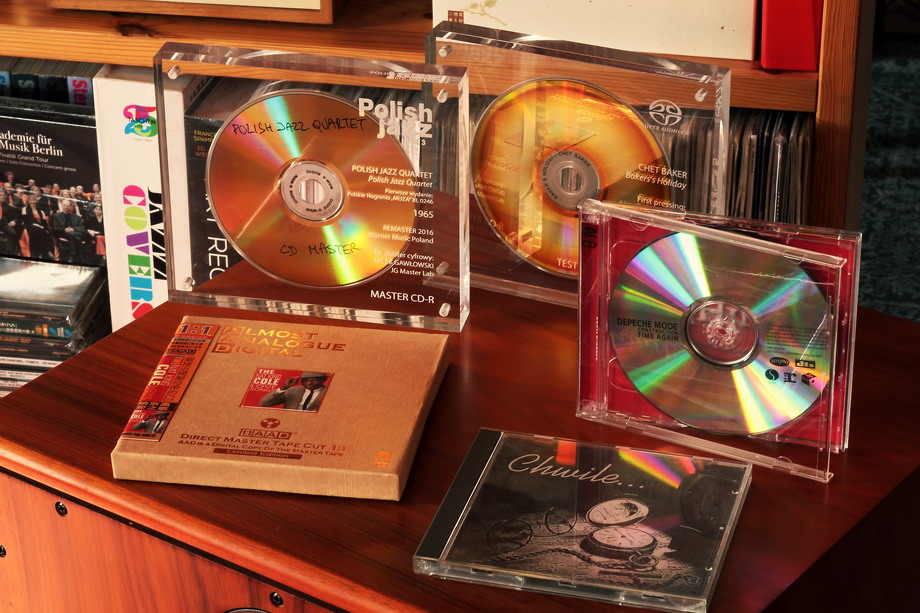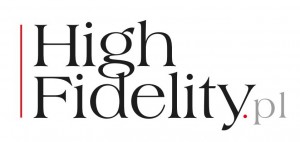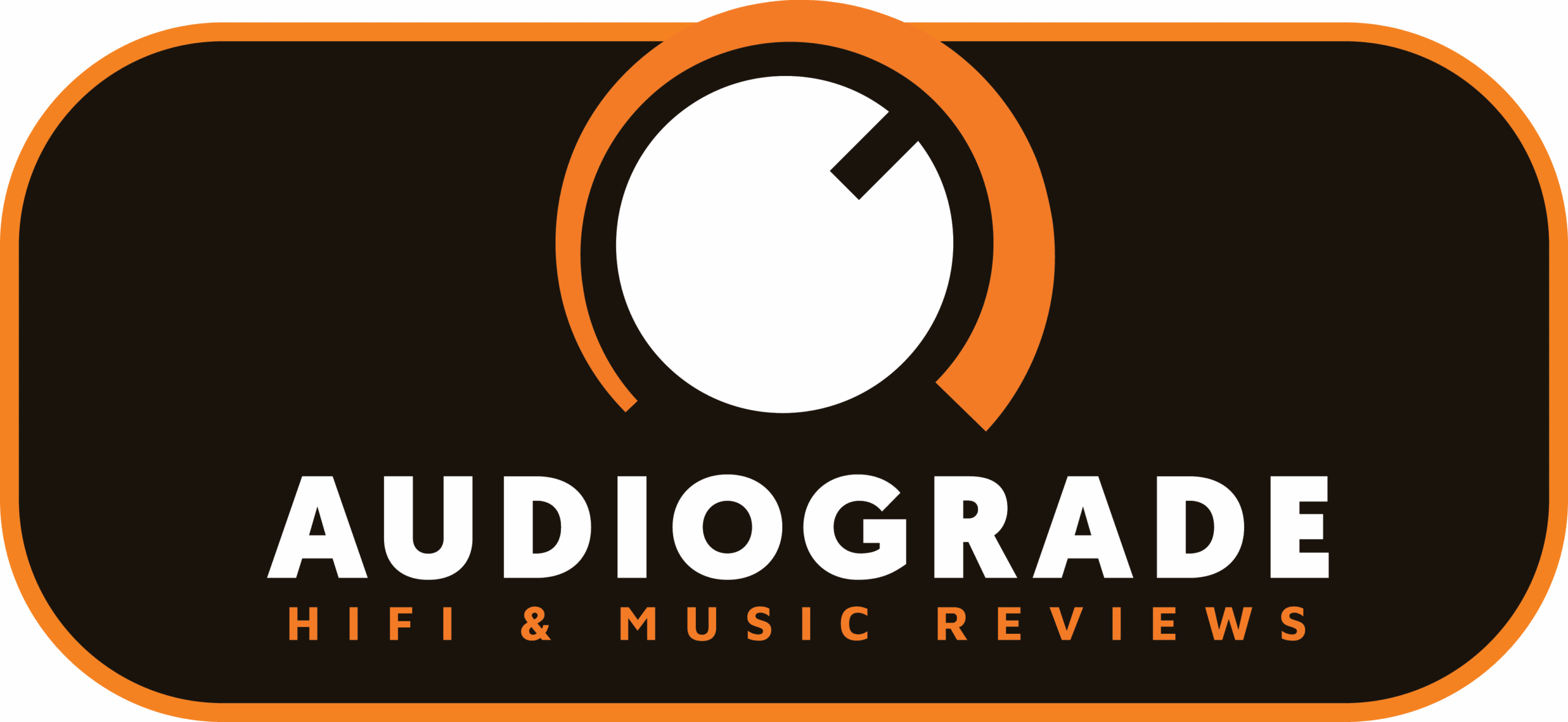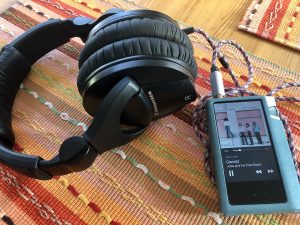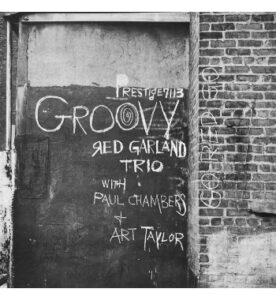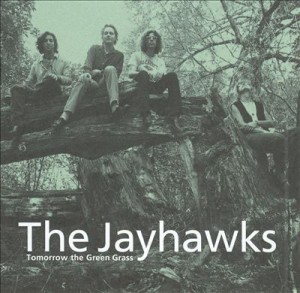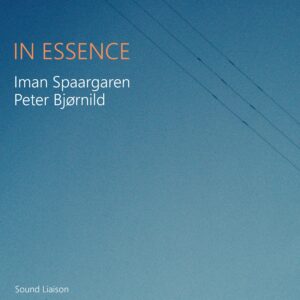Have you ever wondered which CDs to use when assessing your system? Or maybe you'd like to impress your friends? If so, this text is for you. It covers 10 best sounding COMPACT DISCS and some information about what to expect from them.
It was a coincident—if there is such a thing - ask mathematicians about long series of numbers—but within a short time I heard two very similar opinions. The first of them was expressed by Janusz, the host of the meetings of the Krakow Sonic Society, and the second from Bartosz, who runs our News column.
During one of the recent meetings of the KTS, Janusz said that—for him—I could write only such articles as the one about Mr. OKIHIKO SUGANO . The reviews too, obviously—he said—but these types of articles stay with us for a longer time and bring something really new to the audio world. In turn, Bartosz, quite independently, stated that I should write audio-related books, because there are only a handful of interesting positions on the market.
BOOK ABOVE ALL
Well, the truth is that for me, articles such as the biography mentioned by Janusz, such as the description of the label—for example, the BRIPHONIC— like articles about the reissue of CZESŁAW NIEMEN'S and the POLISH JAZZ catalog, like the history of the HIGH PERFORMANCE series by the RCA Red Seal label, as the amazing story of the technique associated with digital recording from the 1970s (Digital technology in the world of analogue. Trojan horse or a necessity?), this is what attracts me the most.
But there is also one major problem with such articles: preparing them requires spending a lot of time on research, looking for information, purchase of several releases, listening to them and finally their evaluation. Therefore, they usually take four to six months to prepare. Hence I'm able to prepare them only at quite long intervals and they cost me a lot of work and—also piece of this puzzle—money. I can't write them too often, because the most important function of an audio magazine is to inform readers about new products and evaluate them. But, as I say, it is the job that interests me the most and which brings me the most satisfaction.
So I envy authors who can (meaning: they have time and money) publish books in the field of audio, with Ken Kessler, the author of a monographs of such companies as QUAD, McIntosh and KEF being one of the most prominent ones. I feel equally strongly towards books published in Japan—except that I understand only English-language comments, photo captions, as well as discographies. I have to figure the rest out myself. Even so, holding them in my hand, I know that I am touching something special. One of such releases is The BEST Sounding CD by Miro Sim, a book published by the Stereo Sound magazine.
The BEST Sounding CD
This small Shiroko ban format publication, i.e. 127 × 188 mm, in soft covers and dust jacket, published for the first time in 2013, is a collection of articles published between 2003 and 2013 in the Stereo Sound magazine under this title. Mr. Miro-san describes forty best—in his opinion—sounding CDs; the latest edition also includes their SACD versions. I have known his articles for years, I bought some of the releases he recommended and I was never disappointed with them.
Looking at this publication, I thought that I had a lot of experience in this matter too, for me, in many cases, the Compact Disc is the best consumer digital format, so why should I not share this knowledge with you. That's how the idea arose for writing about the ten best-sounding—in my opinion—CDs, which I could awards with full ten points on a 10-point scale.
The idea was good, but its implementation turned out to be much more difficult than I thought. The first selection was simple—of the several thousand CDs I have, only a small part offers high sound quality, most of them I bought because of the music. But even after such a narrowing of the number of discs I still had—at least—a thousand releases. Choosing the final ten is therefore a result of compromises and a reflection of my personal preferences and beliefs. And also of some painful decisions. It almost ended up with neurosis—every morning I got up and threw away some of the discs already selected and described the previous day, coming up with a hundred arguments for their substitutes. The next morning it was the same. And another one. The list below is just one of many possible options. Fortunately, I had to stop this to get the article ready for August 1st.
I tried to choose the CDs so that the recommended ten would include different music genres, that they would come from different labels, to indicate different sound engineers and different ways to improve the quality of the sound at the re-play stage. To enlarge this pool slightly, I used also an alternative title under each part. The discs are not listed in any special order, you can rearrange them according to your own view.
01 | PLATINUM SHM-CD | 7" mini LP.
KING CRIMSON, In A Court Of The Crimson King (An Observation By King Crimson).
Label: Island/WOWOW Entertainment IEDG-01 | 1969/2016
RE-ISSUE | DIGITAL REMASTER
The music on this album is on the one hand a classic of the so-called prog-rock - the album was released in 1969 - and on the other a constant inspiration for young musicians. The discogs.com provides 305 different editions of this CD, of which the CD versions make up about 1/3. The 7''Platinum SHM-CD version is the most beautiful and sounds best. It could be a model for this type of releases, for example because the cover has a size of 7," the printing is exemplary, and in addition to the CD there is also a DVD-A with an incredible amount of additional material and other versions of the recordings. The CD is included in the special box - one of two.
The mastery of Steven Wilson, who remastered this material in 2009, can be heard in the "Moonchild" track. It's an incredibly deep sound, natural, smooth, actually what we expect from the best SACD release. There is a deep bass and good treble here, but above all a fantastic, full and three-dimensional midrange. The guitars have both good attack and saturation, and the electronic parts surprise with saturation. There is melancholy in this sound, there is a secret, there is also energy - all that we love King Crimson for. Until Wilson remixes this material it is the "final" version.
ALTERNATIVELY: Pink Floyd, Division Bell. 20th. Anniversary De Luxe Box, Warner Music WPZR-30576/83, 2 x LP + 2 x 7" + 12" 45 rpm + CD + Blu-ray (1994/2014) ⌋
02 | XRCD
THE POLL WINNERS,The Poll Winners
Label: Contemporary Records/JVC JVCXR-0019-2 | 1957/1988
RE-ISSSUE | ANALOG REMASTER
Recorded at Contemporary Records on March 18-19th, 1957, the The Poll Winners album is one of the best albums by jazz guitarist Barney Kessel, joined by drummer Shelly Manne and double bass player Ray Brown. It was recorded within two days for so-called "hundred" by Roy DuNann, one of the best sound engineers. It was the first of five discs recorded by these musician.
I chose for you its version released in 1988 by the JVC. It is a remaster prepared by its American branch, still in 20-bit technique; more about XRCD discs in the article PRAISE OF A (NON)FORMAT: XRCD. An attempted description. Although thirty years have passed since then, the album impresses with its energy and depth of sound. The recording method of Roy Dunann is perfectly audible, with close positioning of microphones and adding reverb to some of them. So we get large, tangible sound sources with perfect timbre, beautiful texture and incredible musicality.
This is a classic recording for this period, so with a guitar in one channel and a double bass and percussion in the other. And yet the so-called “leaks" between the microphones—the tracks were recorded in one take—they are nicely "glued" together. The sound should be close to us, in the foreground, and even in front of it, with high energy and great "timing." It's pure sound but also full of warmth.
ALTERNATIVELY: Art Pepper, Art Pepper Meets the Rhythm Section, Contemporary Records/JVC VICJ-42524, K2 CD (1957/2006) ⌋
03 | EXTREME HARD GLASS CD-R
MAYO NAKANO PIANO TRIO, MIWAKU
Label: Briphonic Records BRPN-7007GL
ORIGINAL RELEASE
Briphonic label, that released the Miwaku album by pianist Mayo Nakano, offers only four albums. But what albums are those! Their recording was a real tour the force and a display of the sensitivity of the label's owner and at the same time the main sound engineer's, Mr. Masamichi Ohashi. The album I would like to introduce to you is the best of them. Recorded and mastered in DSD256 format, it is available in several different formats, with the best one, on a glass Master CD-R. You can find more about the company and its recording techniques in the article entitled BRIPHONIC – just the best.
This is one of the model recordings of a grand piano. It managed to combine both a strong attack, i.e. the percussion nature of this instrument, and a smooth decay. This is a really large instrument in a large space, but one that does not attack or irritate us. The drums are quite close, in the middle, with warm, "golden" cymbals. The double bass is powerful, has a slightly underlined "wood", which makes it seem louder than it really is. But that's good—it's ultimately a creation of sorts. The whole is extremely consistent and combines fantastic resolution, micro-dynamics and soft color.
ALTERNATIVELY: Vladimir Horowitz, Horowitz at the Met, RCA Red Seal/BMG Classics 633142, "High Performance", CD (1982/1990); review HERE
04 | MASTER GOLD CD-R
NAT ‘KING' COLE, The Nat King Cole Love Songs
Label: Master Tape Audio Lab AAD-245A | 2015
RE-ISSUE/KOMPILACJA | ANALOG REMASTER
Master Tape Audio Lab is a record label specializing in reissues of recordings from analog master tapes - both on the tapes and on CDs. The Nat King Cole Love Songs album was released on Master CD-R and copied directly from analog tape, hence the name of the series: "Almost Analogue Digital." You can learn more about this label in PRAISE OF THE FORMAT: COMPACT DISC | A STORY OF ONE ALBUM: Nat King Cole Love Songs
Let's be honest, Cole's albums are primarily about his vocal; let's leave his recordings as the leader of the piano trio out of it for the moment. Some manage to transfer the magic of his voice to a CD, but equally often there is something wrong with it, it is too shallow, too bright. In the Master Tape Audio Lab transfer there is everything we expect from such recording - velvetness, softness, large volume, good connection with the orchestra. The latter is not recorded equally well, but—as I say—in this case it is all about the voice. And the one should be big, right in front of us, just behind the line connecting the speakers. Although it is close, you can hear it as if it was recorded in a large room, that even enlarged and strengthened it.
ALTERNATIVELY: Frank Sinatra, Nice'n'Easy, Capitol Records/Mobile Fidelity UDCD 790, "24kt Gold Collectors Edition", Gold-CD (1960/2002)
05 | COMPACT DISC
T.LOVE, T.LOVE
Label: Pomaton 95907372 | 2016
FIRST RELEASE
Rock recordings almost always offer a poor sound quality. There are exceptions to this rule - let it be some Pink Floyd albums - but, as I say, these are exceptions. So in comparison, the latest studio album by T.Love is a phenomenon. Recorded using an analogue tape recorder and mixed digitally in Jacek Gawłowski's studio, it shows how it can be done in such a way as to preserve rock energy, realize artistic intentions and at the same time offer a fantastic sound. You can find more about this release in the Muniek Staszczyk and Maciek "Majcher" Majchrzak about T.LOVE.
The T.Love disc surprises with dynamics. I was there, in a studio during mastering of a few tracks from this album and I know that the compression is quite big, but it was used so skillfully that it helps and does not harm the sound. And it helps in differentiating layers, the size of instruments and their colors. Listen to the opening track called "Pielgrzym", and your jaw will drop to the floor. If it doesn't, then something is wrong with your system. This is a sound with a powerful bass and midrange, which is not very pure, but it works well in such a repertoire. And this space! In rock music, very, very rarely we will meet such gradation of soundstage layers and their stability. And the music itself is simply unique.
ALTERNATIVELY: Megadeth, Countdown to Extinction, Capitol/Mobile Fidelity Sound Lab UDCD 765, gold-CD (1992/2006) ⌋
06 | COMPACT DISC
ARNE DOMNÉRUS, Jazz at the Pawnshop. Vol. I, II & III
Label: Proprius/Lasting Impression Music LIM UHD 071 LE | 1976/2012
RE-ISSUE | DIGITAL REMASTER
The material for the Jazz at the Pawnshop album was recorded within two days, on December 6 and 7, 1976, in the Swedish Jazzpuben Stampen club (Pawnshop) located in Stockholm. The sound engineer was Gert Palmcrantz, and its producer was Jacob Boethius, the owner of the Proprius Records label. The history of these recordings is anecdotal—the material was recorded on two Nagra IV-S analog tape recorders, one of which was held by Gert Palmcrantz on his lap—there was simply no space for it elsewhere.
The version that I propose is, in my opinion, the best one—was remastered by former Telarc engineers for Mr. Winston Ma's label the Lasting Impression Music and released as part of the "UltraHD CD" series. Originally only one disc was released, with material recorded on the first day. The "Anniversary" edition added all tracks recorded at the time. Now there are three CDs, with full material from both days, plus a DVD with interviews. Equally important, however, is the fantastic booklet.
The Jazz at the Pawnshop is widely regarded as one of the best, and perhaps the best, recording of a jazz concert. I agree with it. Interestingly, the recording was not done using so awesome tape recorder, but a reporter tape recorder, combined with the Dolby A 301 noise reduction modules. And the Dolby system is accused by many audiophiles of everything that is the worst. It turns out that skillfully used—both for recording and re-edition—it offers phenomenal results.
Already the first sounds, i.e. the murmur of people gathered in the club, make me feel the shivers go down the spine. This is an incredibly resolving sound and space so credible that it seems real. Gert Palmcrantz set up two pairs of microphones in the ORTF configuration, which were also supported by point microphones - it gives us an insight straight into the club, without the use of technique. There is incredible dynamics and smoothness, there are also three-dimensional bodies of the instruments. I think it is a better version than the SACD with material straight from analog master tapes.
ALTERNATIVELY: Tomasz Stańko Quartet, Lontano, ECM 1980, CD (2006)
07 | COMPACT DISC
ENYA, Enya
Label: BBC Entertainment BBC CD 605 | 1987
ORIGINAL RELEASE
Electronic music is a special type of recordings. There is no reference in reality, and as reference one can only use other recordings and in the very far perspective acoustic instruments. And yet, when something sounds good, we know it immediately. And this is the case with Enya's debut album. Enya, or Eithne Pádraigín Ní Bhraonáin, comes from a musical family with whom she performed under the name Clannad. In 1982, she began her solo career, but became famous only for her soundtrack for the movie The Celts, released on the Enya in 1987.
I would like to recommend the first edition of this album, mastered in the British company Nimbus—you will find the inscription with its name on the disc, laser burned right next to the hole in the middle. Subsequent editions were released with the changed cover and the title The Celts.
There is momentum and power in this music. This is Enya's best recorded disc, thanks to the softness of the sound, combined with a good arrangement of sounds. The vocal is not pushed forward at all, it can be heard rather in the background, but it is always clear and it is the axis of the recordings. And there is also a beautiful, low bass—let's listen to the opening of the "Aldebaran" track and if it does not go deeper than the Marian Trench, it means—you know it already— that it's time to do something with your system.
ALTERNATIVELY: Aquavoice, Silence, Zoharum ZOHAR 168-2, CD (2018); review HERE
08 | COMPACT DISC
CHUCK MANGIONE, Children of Sanchez
Label: A&M Records 396 700-2 | 1978/1998
RE-ISSUE | DIGITAL REMASTER
The Children of Sanchez is a 1978 film directed by Hall Bartlett, based on the book by Oscar Lewis under the same title. Although the film itself is covered in patina, the title is still known thanks to the inspired, created during long sessions, music by Chuck Mangione. The musician began his career in the late 1950s, and before the Children of Sanchez had released 16 albums (!). He collaborated with such starts as: Art Blakey's Jazz Messengers, Woody Herman, Maynard Ferguson, Steve Gadd and Dizzy Gillespie, he also composed the music opening the Olympic Games in Montreal (1976) and Lake Placid (1980). And yet he is known to the world, including the audiophile world, from this one album—he deservedly received the Grammy Award for it.
Although this is a double-disc album, what really matters is the opening track lasting 14 minutes and 11 seconds, called The Children of Sanchez (Overture). For a long time, there are only guitar and vocals. But what guitar and what vocals these are! Both elements are enlarged, but it gives an amazing impression of communing with a live performance, with a concert. The sound is big, spacious and extremely deep. You can hear the noise of the analogue tape slightly, but only because Dave Collins from A&M Mastering Studios, who oversaw the remaster, did not massacre the recording with a noise reducer.
The version that I recommend for you has not been compressed too much, so you need to push the volume knob a little more up. But when the drums come in, you and your neighbors will fall over. This is kind of power that we rarely experience in recordings, regardless of the format. The impact is perfectly strong, dynamic and quickly extinguished. And when the brass come in, they push us into the seat. There is power, there is smoothness, there is a momentum—everything we love in audio. And the music itself—beauty in its pure form.
ALTERNATIVELY: The Handsom Family, Singing Bones, Carrot Top SAKI036, CD (2003)
09 | COMPACT DISC
DOMINIC MILLER & NEIL STACEY, New Dawn
Label: Naim naimcd066, CD | 2002
ORIGINAL RELEASE
Naim, known mainly for the production of electronic components, has also developed its own recording method, True Stereo. The person behind it is Ken Christianson from Pro Musica (more HERE). In short, it involves using only a pair of microphones and analog recordings without compression and without editing. This is one of the most purist approaches to musical matter, resulting in an unbelievably natural sound.
Dominic Miller (guitarist known for cooperation with Sting) and Neil Stancey's album is different—it was recorded using modern methods, that is digital, with added electronics tracks. And yet it sounds outstanding. I wouldn't say "natural" but still breathtaking. It's a creation because guitars don't sound that way, but it's a perfect creation.
The cover of the album in question includes Dominic Miller's autograph, he gave me after his concert in a small club in Bielsko Biała. During the performance I sat in the front row, and the musician often sat on the edge of the stage, with dangling legs, literally right in front of me. Listening to this album I feel as if I were there again, as if I had received a personal, intimate performance only for me.
We get with it an incredible combination of the warmth of an acoustic guitar, the energy of an electric guitar, with its steel nerve and huge space. Let's listen to the opening track called "New Dawn," and we will hear the entire orchestra, although there are only two instruments plus a keyboard. The "Rush Hour"—my god! What a dynamics, what a bass, and in a moment—what a space! This is not a natural image of guitars, their sound is enlarged and deepened to the low bass. But I love such music and I am looking for such sound. Let's add that the disc is recorded with minimal compression, so you need to push the volume knob up more than usual. But that's why the dynamics is so great.
ALTERNATIVELY: Pat Metheny, What's It All About, Nonesuch Records/Warner Music Japan WPCR-14176, CD (2011); review HERE
10 | COMPACT DISC
SCHUBERT, Song Cycles
perf. Nathalie Stutzmann, Inger Södergren
Label: Erato/Warner Classics 4623701, 3 x CD (2014)
RE-ISSUE/COMPILATION | DIGITAL REMASTER
Nathalie Stutzmann is currently the Chief Conductor of the Norwegian Kristiansand Symphony Orchestra. But above all, she is an excellent contralto. Together with the pianist Inger Södergren, she recorded three cycles of Schubert's songs, originally published by the French label Calliope in 2004, 2005 and 2008. The material recorded at that time was digitally remastered by Michel Pierre and released in 2014 as a three-disc box by Erato.
This is one of the albums that quite often is used in the tests of the Japanese magazine Stereo Sound. It would seem that it is quite simple to record and reproduce, after all it is just a vocal and a piano. In fact, the challenges an audio system faces to reproduce it are enormous. Because it must combine the close perspective of an intimate concert with the large room where the recording was made.
On the album in question, the vocal is closest to us, it is also quite large, and its timbre is set quite low. You can hear the sibilants very slightly, but they are never tiring. The piano is right behind the singer, a bit further from us, with more reflected sounds. The dynamics of this recording is unique.
ALTERNATIVELY: Tartini, Veracini, Mossi, Bonporti, Il Trillo del Diavolo, dyr. Enrico Onofri, perf. Imaginarum Ensemble, Anchor Records UZCL-1019, "HR Cutting," CD (2013)
INFINITY | COMPACT DISC
The Compact Disc is an outdated format that does not meet most of the technical requirements of the digital source of the end of the second decade of the 21st century. Despite this, it is able to deliver simply phenomenal sound. For it to work however, elements such as high-class musicians, valuable music, good recording technique, professional mix and mastering as well as top releases must meet. Since most CDs do not meet these requirements, and if they do, it's selective, usually their sound is just OK.
Yet, a CD offers quite predictable and generally acceptable sound, in which, in my opinion, it outrivals both audio files and vinyl records released today. The only real competitor is a Super Audio CD, but not all of them. In their case, the problem is the way the material is prepared. A copy from an analogue medium or a recording and mix in the DSD domain—this is what this format, the younger brother of the CD, likes the most. But when converting material from PCM files the results are not always what one would expect. Therefore, let me repeat, the Compact Disc is still the best widely available commercial medium for all of us. That's it.
Text: Wojciech Pacuła
Images: Wojciech Pacuła
Translation: Marek Dyba




